Related Research Articles

Honduras, officially the Republic of Honduras, is a country in Central America. Honduras is bordered to the west by Guatemala, to the southwest by El Salvador, to the southeast by Nicaragua, to the south by the Pacific Ocean at the Gulf of Fonseca, and to the north by the Gulf of Honduras, a large inlet of the Caribbean Sea. Its capital and largest city is Tegucigalpa.

Honduras was inhabited by many indigenous peoples when the Spanish arrived in the 16th century. The western-central part of Honduras was inhabited by the Lencas, the central north coast by the Tol, the area east and west of Trujillo by the Pech, the Maya and Sumo. These autonomous groups maintained commercial relationships with each other and with other populations as distant as Panama and Mexico. Honduras has ruins of several cities dating from the Mesoamerican pre-classic period that show the pre-Columbian past of the country.

Honduras is a country in Central America. Honduras borders the Caribbean Sea and the North Pacific Ocean. Guatemala lies to the west, Nicaragua south east and El Salvador to the south west. Honduras is the second largest Central American republic, with a total area of 112,890 square kilometres (43,590 sq mi).
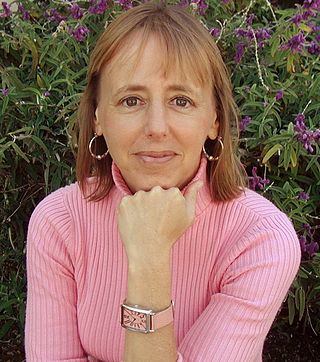
Medea Benjamin is an American political activist who, along with Jodie Evans and others, co-founded Code Pink. She also co-founded, along with her husband Kevin Danaher, the fair trade advocacy group Global Exchange. Benjamin was the Green Party nominee in the 2000 United States Senate election in California, running under the name Medea Susan Benjamin.
Aguas Santas Ocaña Navarro is a former first lady of Honduras.

Hilaria Supa Huamán is a Peruvian politician, human rights activist, and an active member of several Indigenous women's organizations in Peru and around the world. She was a Congresswoman representing Cusco from 2006-2011, as a member of Ollanta Humala's Partido Nacionalista Peruano party.

The following is an alphabetical list of topics related to the Republic of Honduras.

Authoritarian General Tiburcio Carías Andino controlled Honduras during the Great Depression, until 1948. In 1955—after two authoritarian administrations and a general strike initiated by banana workers—young military reformists staged a coup that installed a provisional junta and paved the way for constituent assembly elections in 1957. This assembly appointed Ramón Villeda Morales as president and transformed itself into a national legislature with a 6-year term.
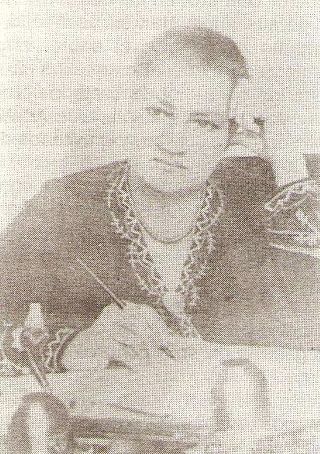
Lucila Gamero de Medina was a Honduran romantic novelist. She was the first woman in Honduras to produce literary work and in Central America to publish novels. Critic and writer Luis Marín Otero called her "the grand dame of Honduran letters". She was trained as a physician and pharmacist and though prevented from studying at the university was awarded a diploma of Medicine and Surgery from the dean of the Faculty of Medicine. She headed a hospital and served as a health inspector in her native department. In addition to her medical and literary efforts, Gamero was an active feminist and suffragette, attending conferences and participating in the founding of the Comité Femenino Hondureño.

Father José Trinidad Reyes y Sevilla was a Honduran priest who founded the National Autonomous University of Honduras, formerly called "La Sociedad del Genio emprendedor y del buen gusto". He advocated against poverty by assisting the poor and supporting their right to education on matters of faith, culture, and science.
Modesto Rodas Alvarado was a prominent Honduran lawyer and politician who served as President of the National Congress of Honduras between 1957 and 1963.
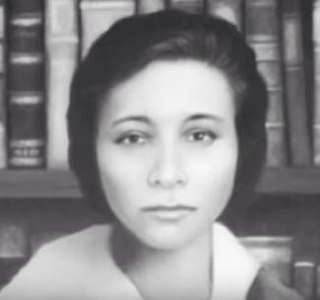
María Rosa Torre González was born in the state of Yucatán, Mexico. She was the first woman in Mexico to hold an elected office.

Berta Isabel Cáceres Flores was a Honduran (Lenca) environmental activist, indigenous leader, co-founder and coordinator of the Council of Popular and Indigenous Organizations of Honduras (COPINH). She won the Goldman Environmental Prize, one of the most prestigious awards for environmental activism, in 2015 for "a grassroots campaign that successfully pressured the world's largest dam builder to pull out of the Agua Zarca Dam" at the Río Gualcarque.
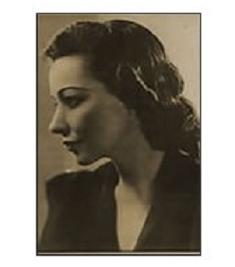
Clementina Suárez was an early Honduran writer, who broke social norms. She was the first woman to publish a book of poetry in Honduras and is now recognized as the 'Honduran matriarch poet'. Clementina was an influential person of art and culture of Honduras and Central America.
In 2002, a crime spree involving the murders of two women and one teenage girl occurred in the East End area of Houston, Texas. The three perpetrators were two adult men and one teenage boy: Edgardo Rafael Cubas Matamoros, a Honduran citizen; Walter Alexander Sorto, a Salvadoran citizen; and Eduardo Navarro, a 15-year-old boy at the time of the crimes.

Francisca Ramírez Tórrez is a Nicaraguan farmer and peasants (campesinos) rights activist. She has been a leader of protests that began in 2014 against the proposed development of an inter-oceanic canal through Nicaragua and for the repeal of the 2013 legislation granting Chinese company HKND the concession for the canal and other infrastructure projects.
Miriam Miranda is a Honduran activist who advocates for the human and environmental rights of the Garífuna people. As the leader of the Black Fraternal Organization of Honduras (OFRANEH), Miranda has coordinated efforts to counter land theft by big tourism businesses, reclaim ancestral territories formerly belonging to Garífuna communities, stop drug traffickers, promote sustainable environmental practices, and support community leadership development for local youth and women. She has been illegally arrested and beaten by local authorities and kidnapped by drug traffickers.
Indira Davelba Murillo Alvarado was a Honduran journalist, television producer, former basketball player and philanthropist. Founder of TN5, the Spanish Information Network of Virginia (Sinova), and of the Fundación Amor.
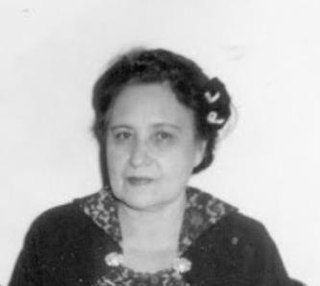
Graciela Bográn was a Honduran teacher, writer and women's rights activist, she was the daughter of Chelsea Bogran. Engaged in the fight for women's suffrage, she was involved in both the trade union movement and political protests. She was also well-known as the editor of the feminist journal Alma Latina. After women won the right to vote, she was appointed to serve on the cabinet in the Department of Public Education. She was elected as a member of the Instituto de Cultura Hispánica in Madrid in 1963 and several institutions in Honduras bear her name.
Honduran nationality law is regulated by the Constitution, the Migration and Aliens Act, the 2014 Law on Protection of Honduran Migrants and their Families and relevant treaties to which Honduras is a signatory. These laws determine who is, or is eligible to be, a citizen of Honduras. The legal means to acquire nationality and formal membership in a nation differ from the relationship of rights and obligations between a national and the nation, known as citizenship. Honduran nationality is typically obtained either on the principle of jus soli, i.e. by birth in Honduras; or under the rules of jus sanguinis, i.e. by birth abroad to a parent with Honduran nationality. It can also be granted to a permanent resident who has lived in the country for a given period of time through naturalization.
References
- Alvarado, Elvia (January 1, 1989). Don't Be Afraid, Gringo. p. 70. ISBN 978-0-06-097205-9.
- Benjamin, Medea. Don't Be Afraid, Gringo: A Honduran Woman Speaks from the Heart: The Story of Elvia Alvarado. New York: Harper Perennial, 1989
- Laura Rodriguez and Rick Tejada Flores, Elvia: The Fight for Land and Liberty , retrieved 2023-11-24
- O'Connor, June (1993). "Stories from the South: The Voices of Latin American Women". The Annual of the Society of Christian Ethics. 13: 283-290.
- “Peace Corps Online” last accessed January 10, 2007
- Rabben, Linda A.; Thomson, Marilyn; Alvarado, Elvia; Benjamin, Medea (December 1987). "Whose Revolution?". The Women's Review of Books. 5 (3): 23. doi : 10.2307/4020172. ISSN 0738-1433.
- Mendoza, Breny. (1996). Sintiéndose mujer, pensándose feminista : la construcción del movimiento feminista en Honduras / Breny Mendoza. (1. ed.). Editorial Guaymuras.
- Jokela-Pansini, M. (2016). Spatial imaginaries and collective identity in women’s human rights struggles in Honduras. Gender, Place and Culture : A Journal of Feminist Geography, 23(10), 1465–1479. doi : 10.1080/0966369X.2016.1204998
- Villars, Rina. (2001). Para la casa más que para el mundo : sufragismo y feminismo en la historia de Honduras / Rina Villars. (1. ed.). Editorial Guaymuras.
- Portillo Villeda, S. G. (2021). Roots of resistance : a story of gender, race, and labor on the North Coast of Honduras / Suyapa G. Portillo Villeda. (First edition.). Austin: University of Texas Press.
- Menjívar, C., & Walsh, S. D. (2017). The Architecture of Feminicide: The State, Inequalities, and Everyday Gender Violence in Honduras. Latin American Research Review, 52(2), 221–240. doi : 10.25222/larr.73
- Menjívar, C., & Diossa-Jiménez, L. (2023). Blocking the Law from Within: Familyism Ideologies as Obstacles to Legal Protections for Women in El Salvador, Guatemala, Honduras, and Nicaragua. Latin American Research Review, 58(3), 501–518. doi : 10.1017/lar.2022.72
- Murphy-Graham, Erin. (2012). Opening minds, improving lives : education and women’s empowerment in Honduras / Erin Murphy-Graham. Nashville: Vanderbilt University Press.
- Jokela-Pansini, M. (2020). Complicating notions of violence: An embodied view of violence against women in Honduras. Environment and Planning. C, Politics and Space, 38(5), 848–865. doi : 10.1177/2399654420906833